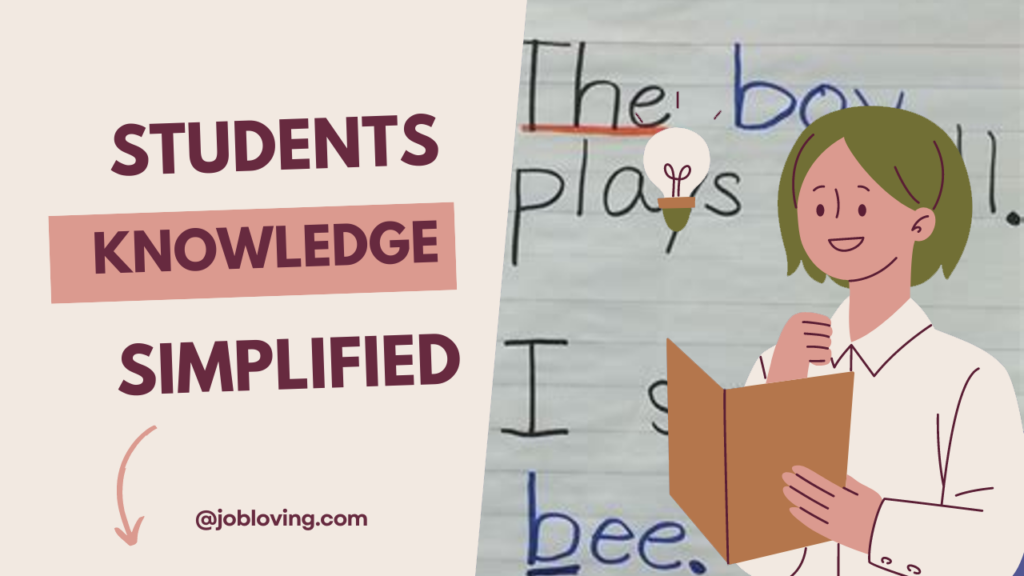Which Article Will Be Used with Student? A Comedic Quest for Clarity!
Ever found yourself tangled in the murky waters of English grammar? Fear not! Today, we dive deep into the seas of articles and students. You might be wondering: Which article will be used with student? Is it “a,” “an,” or “the”? Or do we just pack up and move to a deserted island instead? Spoiler alert: No island hopping required! So, let’s untangle this mess of articles with humor and clarity.
Understanding Articles
First off, let’s establish what we’re talking about here. In English, articles are words that define a noun as specific or unspecific. There are three main contenders: “a,” “an,” and “the.” A bit like the Avengers, if you will, but much less likely to save the day with capes and superpowers – more like grammar heroes, if you can picture that.
Here’s the rundown:
- A/An: These are known as indefinite articles. Use them when referring to any one of a general group. Think of it like saying, “I want to be a student.” Some students may be cooler than others, but you’ve opened the door to anyone who falls into the student pool.
- The: This is the definite article, used when referring to a specific instance of a noun. So, if you say, “the student sitting in the corner,” now you’re putting your finger on a particular learner who may or may not know the answer to the question posed by the teacher. Fingers crossed!
General Statements vs. Specific References
Now, here’s where things start to get interesting. The use of articles often depends on whether you’re making a general statement or referring to something specific. It’s like going to a buffet — are you piling your plate high with just anything or are you aiming for that specific slice of chocolate cake?
1. General Statements
Let’s explore generalities first. When you’re making a sweeping statement about a group, like saying, “Students are often lazy,” you’re not pointing a finger at anyone in particular. It’s like a broad brushstroke across a canvas. No articles necessary here! You’re not calling out individual students; you’re just making an observation about the species known as “student” — and we all know they’re sneaky with those late-night Netflix binges.
2. Specific References
Now, let’s say you need to narrow it down. If you wish to discuss the star pupils in your class, like, “The students who passed the test with flying colors are going on a field trip,” well then, my friend, it’s time to put on your definite article hat! You’re referring to a specific set of students who have achieved something noteworthy. The is standing front and center—they’re the VIPs of the classroom.
Examples to Rock Your Article World
To solidify our understanding, let’s toss around some more examples.
Case 1: General Statement
Incorrect: The students can be lazy. Correct: Students can be lazy.
In this example, we’re dealing in generalities — any student, every student — you name it! No “the” is needed because we’re not specifying. Just like how you might say, “Dogs are wonderful,” rather than “The dogs in my neighborhood are wonderful.”
Case 2: Specific Reference
Incorrect: Students that I taught are graduating this year. Correct: The students that I taught are graduating this year.
Here we’ve zoomed in on a select group of very important students — those that you had the honor of teaching. Snazzy! You’re using “the” wisely to showcase your precious gems who are set to strut across the graduation stage!
Sneaky Exceptions
Like every superhero story, there are always plot twists, right? The English language has its share of exceptions, and we must be on guard! Let’s discuss some scenarios that may confuse even the most seasoned grammar warriors.
Abstract Concepts
When referring to abstract concepts, like wisdom or kindness, you would say, “Wisdom is key” or “Kindness goes a long way.” Here, we’re talking about these traits in a general sense without needing any articles at all! It’s like holding up a mirror to societal values and saying, “Take a good long look, folks!”
Uncountable Nouns
Uncountable nouns are another delightful quirk of English. When discussing uncountable nouns like water, information, or advice, no article is needed: “Water is essential for life.” Sorry, “the water” doesn’t enter this equation unless we’re talking about some specific magical potion brewing under a rainbow!
Conclusion: Let’s Summarize!
So, we’ve navigated the choppy waters of articles, and by golly, we made it without capsizing! Just remember:
- If you’re talking about students in general, swagger boldly without an article: “Students can be lazy.”
- If you’re narrowing your focus on a specific group, pull out the definite article and say, “The students that I taught are graduating!”
- For abstract concepts and uncountable nouns, sometimes you don’t need an article at all to express your thoughts.
Learning to navigate articles may feel like trying to tackle a lion with a feather duster, but the key takeaway is awareness. Whether it’s general or specific, knowing which article to use can truly transform your English communication from “meh” to “wow!” So strut your stuff and show the world your newfound article prowess!
Now, go forth, brave student of language, and conquer the grammar jungle! With humor and confidence as your companions, the world of articles is yours to command! Happy writing!

